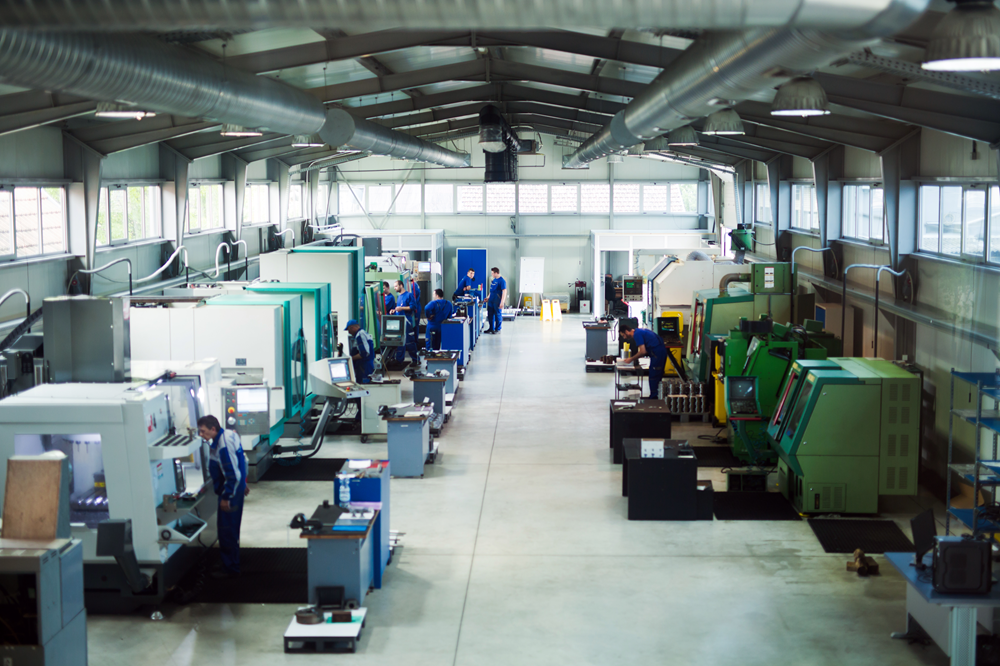Workers do the impossible at machine shops every day, transforming some of the hardest materials into critical parts and components we use in every area of our lives. But with so much emphasis on getting things done, it can be easy for issues with old machinery and uncomfortable working conditions to go unnoticed. Workers might just endure problems rather than approach management for machine shop improvements out of fear for their job security or concerns about being viewed as difficult.
However, many of these machine shop issues go beyond merely inconveniencing workers or creating difficult working conditions — they could be hurting productivity, limiting profits, reducing job satisfaction, or even creating safety hazards. Asking for machine shop improvements could drastically improve things for both frontline workers and the operation at large. Here’s how workers can make the case to management.
The Biggest Machine Shop Issues
Some of the biggest issues with machine shops stem from the physical environment, including:
- Old Machinery and Equipment
Machines are a major capital investment, so budget-conscious shop owners might avoid replacing them as frequently as necessary to avoid the cost. But older machines and equipment are often more difficult to use, offer lower productivity, create challenges in acquiring maintenance or repair parts, and cause other issues that can make any operation more challenging than usual. - Inadequate Maintenance
Neglecting proper equipment and cutting fluid maintenance can also create a number of problems. For example, hydraulic and way lube oil leaks can seep into the coolant sump, forming a layer of oil on top that causes stagnation and promotes bacterial growth. The resulting foul odor can severely undermine the quality of the work environment and reduce coolant health. - Poor Layout
If management doesn’t properly utilize space in the shop, it can create inefficient workflows and cramped working conditions that hurt productivity and create potential safety issues. - Low-Quality Cutting Fluid
Using low-quality cutting fluid saves on upfront costs but can significantly reduce overall fluid life, diminish finish quality, require rework that hurts productivity, or even increase waste and machine downtime. Poor quality coolant can lead to an unpleasant working environment.
Making the Case for Machine Shop Improvements
Any one of the above issues can severely undermine worker productivity, job satisfaction, and more. Here are three ways to request machine shop improvements from management:
1. Leverage supplier expertise
If a shop’s machinery is still under a service agreement with the manufacturer, frontline workers can bring up equipment issues with suppliers during site visits and ask for their recommendations. The same applies to problems with cutting fluid, such as short fluid life, odor emanating from the sump, or poor part finish. Supplier reps have a depth of knowledge about their products’ capabilities, technological advancements, and potential upgrades that can help shop workers make informed requests for improvements backed by supplier insights.
2. Gather data
To make the most compelling case, workers should collect data on equipment and fluid performance, maintenance costs, downtime, safety incidents and other metrics related to existing conditions. Management ultimately thinks in terms of numbers and ROI, so empirical evidence demonstrates the tangible benefits of investing in machine shop improvements. With concrete data at their disposal, workers can confidently make their case to management and show how shop improvements can improve the bottom line. Suppliers can also help with data gathering through equipment performance and cutting fluid audits.
3. Tie requests to company initiatives
In addition to ROI, management is often focused on different company initiatives, such as cost cutting, improving productivity, or generating more revenue. If the request for machine shop improvements does not somehow tie in to a company initiative, it can make for a harder sell. If management’s primary concern is cost savings, workers can easily make the case that investing in higher quality cutting fluid or new equipment can save time and reduce maintenance costs. On the other hand, if management is concerned about increasing revenue and profit, a request for higher quality cutting fluid should highlight how it can create a better work environment and improve attendance, retention, and overall job satisfaction, making it easier for the company to increase production volume.
Machine shop improvements are critical not only to job satisfaction, but also to the overall health of the company. And those improvements can come from something as simple as choosing the right vendors. The team at Master Fluid Solutions serves as a trusted partner for all their customers and is dedicated to helping frontline workers improve their work experience and produce better products with the right cutting fluid selection and maintenance protocols. Get in touch today to schedule a site visit and fluid audit.

